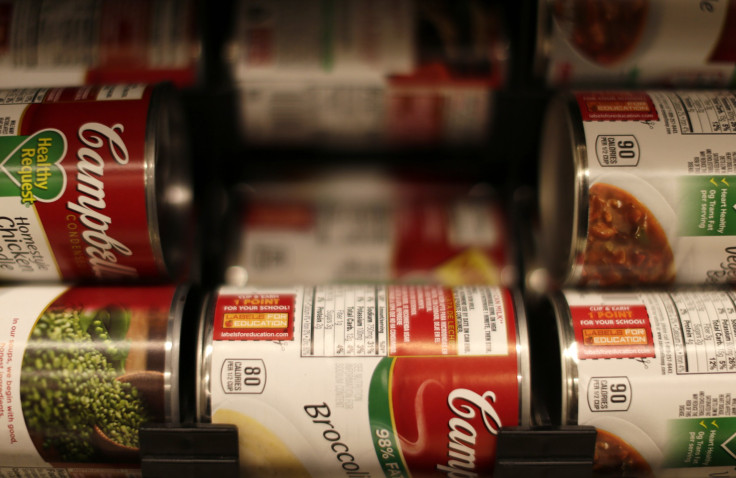Campbell Soup becomes first American food company to start GMO labelling for products

The clamour for greater transparency on ingredients in food products by using a distinct labeling for genetically modified ingredients has been answered by Campbell Soup Co. It announced a new labeling practice for all its US products to mark the presence of ingredients derived from genetically modified organisms.
The decision has made Campbell Soup the first major food company to offer better transparency on the contents it has beeen using in the food products. The company also makes Pepperidge Farm cookies and Prego pasta sauces, reports Reuters.
Supports federal law
According to a statement from Campbell Soup, the company would also disassociate from the efforts of other food companies and groups that resist separate labeling measures. The soup maker not only broke ranks with peers but also voiced support for a federal legislation as a single mandatory labeling standard for GMO-derived foods.
Many pro-labeling groups, including Environmental Working Group and Just Label It hailed Campbell's move.
“We applaud Campbell's for supporting national, mandatory GMO labeling,” Scott Faber, senior vice president of government affairs at EWG said.
Campbell also said if a federal labelling solution is not evolving, it would be ready to label all its US products for GMO ingredients and seek guidance from the FDA and approved by the USDA.
Green demand
Green activists have been urging all food companies to ensure more transparency on ingredients, especially GMO-derived ones, with riisng concerns over impact at the health and environment fronts.
In the big crowd of food companies, Campbell Soup has turned into an exception with many big companies such as PepsiCo Inc, Kellogg Co and Monsanto Co resisting calls for separate GMO labeling and spending millions of dollars to defeat GMO-labeling ballot measures in states such as Oregon, Colorado, Washington and California. The reluctant food companies are citing the burden of high costs in switching to separate labeling methods.
Some of the biggest agrochemical and biotech seed companies such as Monsanto, Dupont, Dow AgroSciences, Bayer CropScience, BASF Plant Science and Syngenta AG reportedly spent more than US $21.5 million (AU$30.7 million) in thwarting a 2012 California labeling proposition.
Vermont lead
In the US, Vermont became the first state to pass a law that made mandatory for food companies to label GMOs on products in 2014.
Meanwhile, the Grocery Manufacturers Association (GMA) opposing mandatory GMO labelling, played down Campbell’s move and said individual members have the right to communicate with customers in whatever manner they feel appropriate.
While welcoming Campbell’s move, an analyst commented in The Guardian that this step should have come some 20 years ago and now it is a tad late.
In the US, the labeling movement will gain more ground as organic sustainability is growing high in the public consciousness. Campbell’s willingness to label GMO is more transparency and will inspire other companies to take similar action, the expert said.





















